Ndovu Team Ithumba Update: 01 April 2010
Participants Patrick Mutuku Musau Kitulya Noah Lesirmidana Lemanten Labarakwe James Lodungokiyok
One poacher arrested 35 small snares lifted
FINDINGS The Ithumba team reported back to work from their annual leave on 9/4/10. The Tsavo East national park northern area has received substantial amounts of rainfall since the beginning of the year and the waterholes and dams are once again full. The Ithumba dam near the airstrip has filled to the extent of spilling over and the new drilled borehole which was sunk near the dam has been submerged in water.
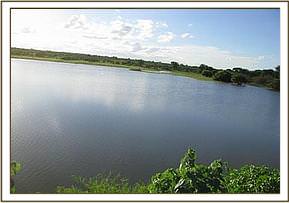
ITHUMBA NORTHERN AREA FENCELINE This month the fence attendants got a helping hand from the Kazi kwa vijana programme. They were relieved the heavy burden of keeping the grass short during the rains with twenty casuals being engaged who are clearing the fence line on the community side clearing from the Tiva River to the Kanziko gate.
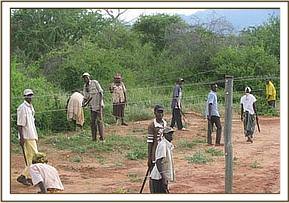
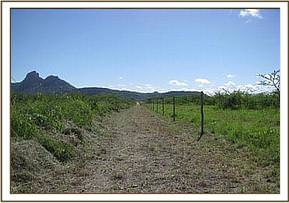

TUNDANI, UMAUMA, TIVA RIVER STRETCH Most sections of the road have been washed away by the heavy rains leaving deep gulleys which make patrols in some sections unbearable. Other road sections such as at Kanziko and Mathae are waterlogged and impassable. We got stuck on Mathae road on our way to the Kanziko gate and had to be pulled out by the tractor.
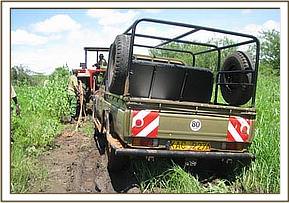

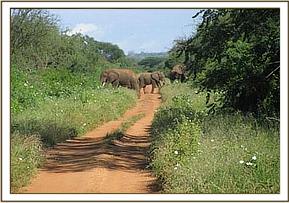
KASAALA FENCELINE, MATHAE AND KANZIKO AREA. Along the fence line, we noted some routes which are being used frequently by poachers. We managed to lift 35 small snares which had been laid just along the fence line. The poachers are entering near the power line and Mathae road where we spotted two footprints moving into the park.
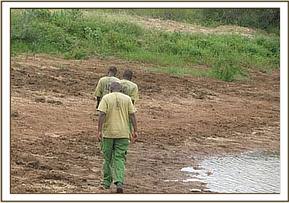
COMMUNITY OUTREACH PROGRAMME During one of our visits to the community, we came across an elephant poacher whom we had arrested sometime ago, he was out of jail and spoke to us honestly about he and other poachers are tempted by the current good prices of ivory in the market. So while we intensify the patrols inside the park, the market chains also need to be dismantled and destabilised in order to have an impact. On one of the community visits at the Kimweli area, we came across a poacher who was carrying poisoned arrows. He tried to hide them under his inside his coat by putting them under his arms but they were still protruding from the bottom of his coat.
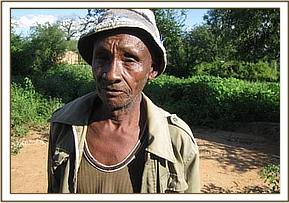
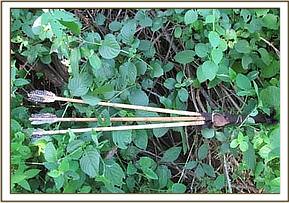

FILM SHOW AT KASAALA AND KAVETE PRIMARY SCHOOL. We managed to show wildlife films to two primary schools whose pupils were on holiday tuition. The respective head teachers had requested for the video shows. Kasaala primary school was the first one where to see the videos. The show was attended by about 600 pupils who really enjoyed the film.
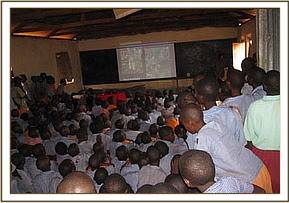
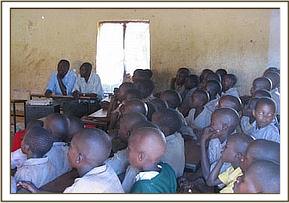
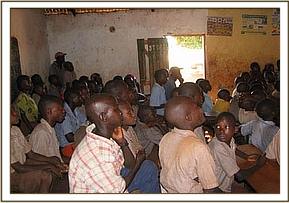

REPORT BY PATRICK MUTUKU